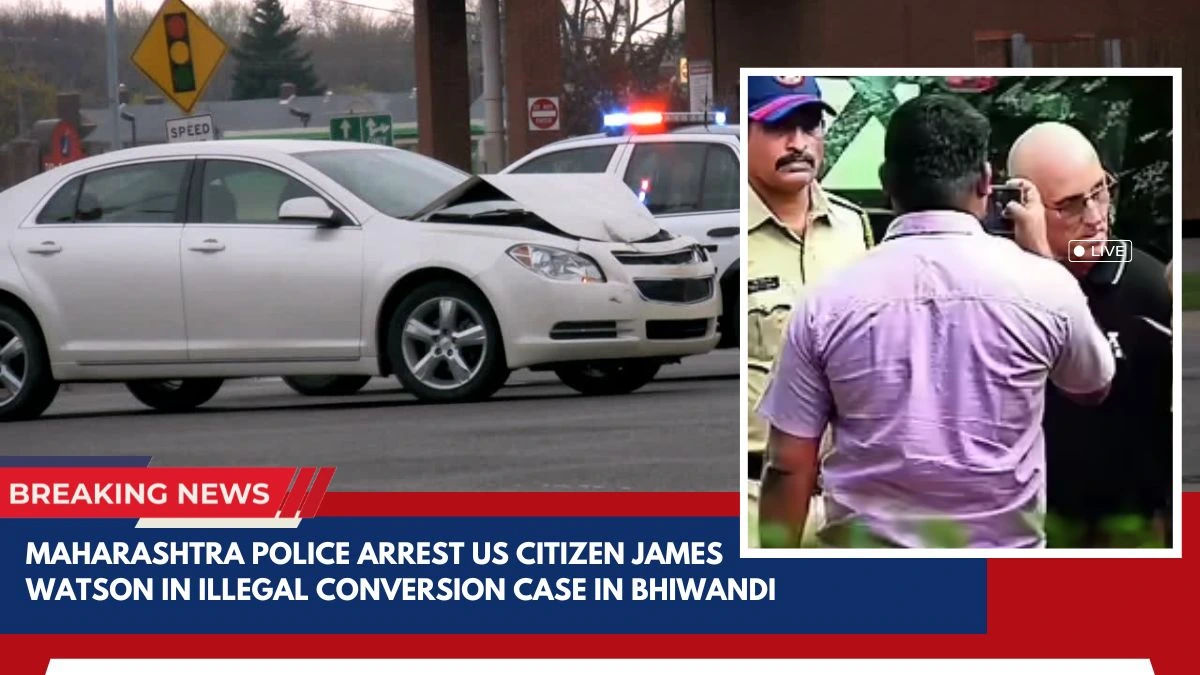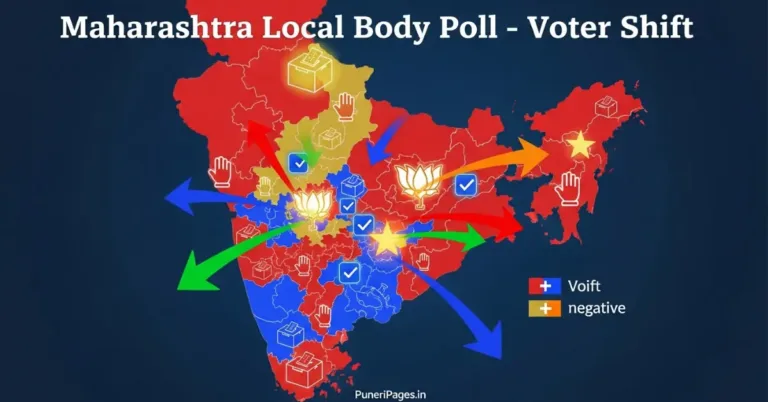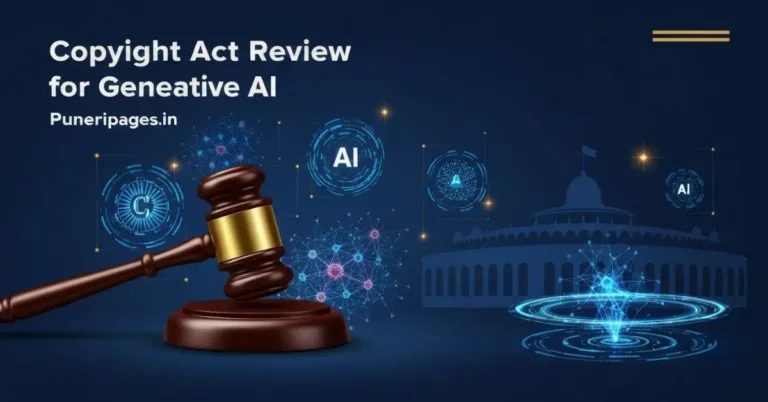
Maharashtra Police detain US citizen James Watson in Bhiwandi for allegedly conducting illegal religious conversion activities. | Source: PuneRiPages.in
Maharashtra police have arrested 58-year-old US national James Watson, along with two local associates, for allegedly attempting an illegal religious conversion in Bhiwandi, in the Thane district. The trio is accused of distributing Christian literature and claiming they could cure illnesses through conversion—raising serious concerns about misuse of visas, religious freedom, and the regulation of conversion activities in India.
Table of Contents
Details of the Arrest: Who, Where, and Why
The Bhiwandi Taluka police detained James Watson, who was reportedly in India on a business visa, along with two Indian nationals identified as Sainath Ganpati Sarpe (age 42) and Manoj Kolha (age 35). mint+1
The arrests were made after a complaint from local villagers in Chimbipada, a hamlet in Bhiwandi, who alleged that Watson and his associates tried to convert them to Christianity by distributing religious books and using the promise of healing from illnesses as inducement. mint+1
According to police, the conversion attempt was disguised as a miracle cure initiative. The accused reportedly told gatherings that switching religion would free people from their ailments. The FIR lodged against them includes charges under sections of the Bharatiya Nyaya Sanhita for outraging religious sentiments, and also provisions under the Foreigners Act and Maharashtra’s anti-conversion law. mint+1
Legal Charges and Investigations Underway
The three accused have been booked under multiple sections:
- Indian Penal Code (IPC): Clauses related to outraging religious feelings and malicious intent.
- Foreigners Act: Regarding misuse of visa status and unauthorized religious activity.
- Maharashtra Prevention and Eradication of Human Sacrifice and Other Inhuman, Evil and Aghori Practices and Black Magic Act, 2013: Where applicable in cases involving claims of supernatural cures.
Authorities say they are investigating whether the accused had any prior history of similar activity and whether more persons were involved. Visa records, financial transactions, and local connections are all under scrutiny. mint+1
The police have also initiated checks on Watson’s business visa credentials and whether local laws were violated during the alleged conversions.
Why This Incident Has Sparked National Attention
This case resonates on multiple sensitive fronts:
- Religious Freedom & Conversion Laws: India has several problematic “anti-conversion” statutes. This arrest puts the spotlight on how those laws are enforced and when they might be misused.
- Visa Abuse & Foreigner Oversight: The fact that a foreign national allegedly misused a business visa to conduct religious activities raises policy and regulatory concerns.
- Sensitive Rural Communities: Chimbipada and nearby areas are socially vulnerable. Alleged promises of healing can sway financially struggling villagers, making them targets for exploitative conversions.
- Judicial & Political Ramifications: This repairable case may be used as precedent for how courts interpret religious conversion disputes and visa misuse.
The arrest has ignited public discourse on the fine line between freedom of religion and coerced conversions, especially in rural India.
Reactions from Government & Religious Leaders
Government officials have reacted with mixed tones. Some have welcomed the arrest as upholding constitutional safeguards; others call for cautious inquiry to ensure fair treatment of the accused.
Religious scholars and community leaders have expressed concern over possible communal polarization. While many denounce forced conversions, they warn that anti-conversion cases must not be used to harass minority communities or infringe on religious rights.
Legal experts have emphasized due process: Watson and his associates are entitled to a fair trial, legal representation, and the presumption of innocence until proven guilty.
Implications for Foreign Nationals and Missionary Activity in India
James Watson’s detention is likely to have broader implications for:
- Foreign Missionary Work: Restrictions on religious activities by foreigners may increase, especially in states with strict anti‐conversion laws.
- Visa Scrutiny: Business visa holders promoting religion might face tighter checks or restrictions on travel and activity.
- Diplomatic Sensitivities: The U.S. government may take interest in the case, raising bilateral concerns about religious freedom and treatment of its citizens abroad.
- Legal Precedents: Courts may clarify how religious conversion claims interact with visa law and fundamental rights.
This case could become a reference point in future legal and diplomatic debates on religion, immigration, and human rights in India.
What Happens Next: Legal Process & Public Watch
- Judicial Bail / Custody Decisions: The court will decide on bail and whether to remand the accused.
- Detailed Investigation: Experts will examine documents, testimonies, financial records, and local testimonies.
- Public & Media Scrutiny: Media coverage will continue; public pressure may influence transparency.
- Legal Precedent: Courts may use this case to clarify rules around religious conversion, especially involving foreigners.
The case will test how India’s legal and constitutional frameworks handle overlapping issues of religion, immigration, and rural exploitation.
Conclusion
The arrest of U.S. citizen James Watson and two locals in Bhiwandi for alleged illegal conversion under the guise of healing has thrust sensitive issues into the spotlight: religious freedom, visa misuse, rural vulnerability, and the limits of missionary activity in India. As investigations deepen and judicial proceedings begin, the case will likely become a watershed moment in Indian legal and social discourse.






